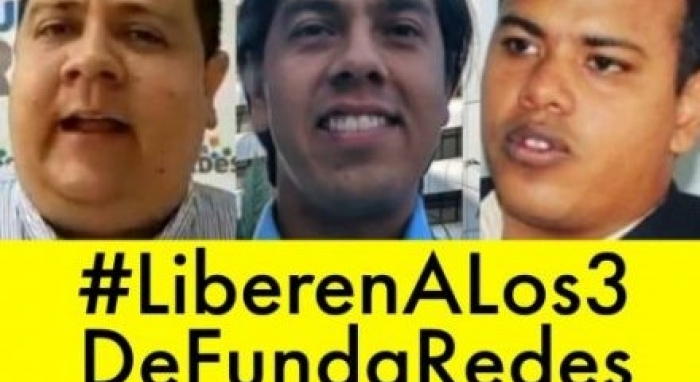As mandated through Council resolution A/HRC/RES/45/20, the High Commissioner presented a new report to the Council on the human rights situation in Venezuela.
The update came a few short days after three human rights defenders, Javier Tarazona, Rafael Tarazona & Omar García of the NGO FundaRedes, were arbitrarily detained on baseless charges.
‘The arbitrary detention of yet more human rights defenders in the country during the Council session demanded a response from every Council member,’ said ISHR’s Eleanor Openshaw.
Belguim and the Netherlands were the only states to make direct mention of the defenders’ detention, although restrictions on civil society in the country were much cited and deplored.
In a statement by 55 countries presented by Brazil persistent restrictions on civic and democratic space were cited as one of the principal factors contributing to a decline in the respect of human rights in the country; other factors including the deterioration of the rule of law, and the lack of independence of the judicial system. On the latter, Belgium spoke powerfully of the judiciary as a ”politicized tool for repression rather than a defender of the rule of law”, citing the conclusion of the NGO ICJ.
ISHR was pleased to present a short statement during the session expressing concern at the criminalisation of civil society in the country:
With several UN bodies and mechanisms now active and issuing recommendations for human rights change in Venezuela, many referenced their lack of implementation. A group of Venezuelan NGOs, of the 43 recommendations made by the High Commissioner since 2019, the Venezuelan states has failed to implement any, with deterioration in regard to the situation referenced in 33 of those recommendations, in particular in regard to arbitrary detentions, the separation of powers, the situation in the region of the Arco Minero (a specific focus of UN concern) and economic, social and cultural rights.
OHCHR’s own work in Venezuela was recognized by NGOs during the dialogue, but the Office also came in for some criticism. The group of Venezuelan NGOs noted what they see as the Office’s failure to monitor implementation which has led to an incomplete picture of what is occurring in the country. The NGOs are also critical of what they see as the Office’s tardiness in taking up urgent cases.
High Commissioner Bachelet expressed hope that, one year after her visit to Venezuela, negotiations with the Venezuelan government would lead to the establishment of a permanent presence in the country. A word of caution was raised by ICJ which called on OHCHR to inject greater transparency into its agreements with the Venezuelan government including through the participation of national and international organisations.
Multiple calls were also made by states and NGOs alike to facilitate access of Special Procedures to the country – to provide an ongoing and reporting schedule – as well as access for the UN fact-finding mission who will next report to the Council in September.
With several UN bodies and mechanisms now active and issuing recommendations for human rights change in Venezuela, many referenced their lack of implementation. A group of Venezuelan NGOs, of the 43 recommendations made by the High Commissioner since 2019, the Venezuelan states has failed to implement any, with deterioration in regard to the situation referenced in 33 of those recommendations, in particular in regard to arbitrary detentions, the separation of powers, the situation in the region of the Arco Minero (a specific focus of UN concern) and economic, social and cultural rights.
OHCHR’s own work in Venezuela was recognized by NGOs during the dialogue, but the Office also came in for some criticism. The group of Venezuelan NGOs noted what they see as the Office’s failure to monitor implementation which has led to an incomplete picture of what is occurring in the country. The NGOs are also critical of what they see as the Office’s tardiness in taking up urgent cases.
High Commissioner Bachelet expressed hope that, one year after her visit to Venezuela, negotiations with the Venezuelan government would lead to the establishment of a permanent presence in the country. A word of caution was raised by ICJ which called on OHCHR to inject greater transparency into its agreements with the Venezuelan government including through the participation of national and international organisations.
Multiple calls were also made by states and NGOs alike to facilitate access of Special Procedures to the country – to provide an ongoing and reporting schedule – as well as access for the UN fact-finding mission who will next report to the Council in September.




